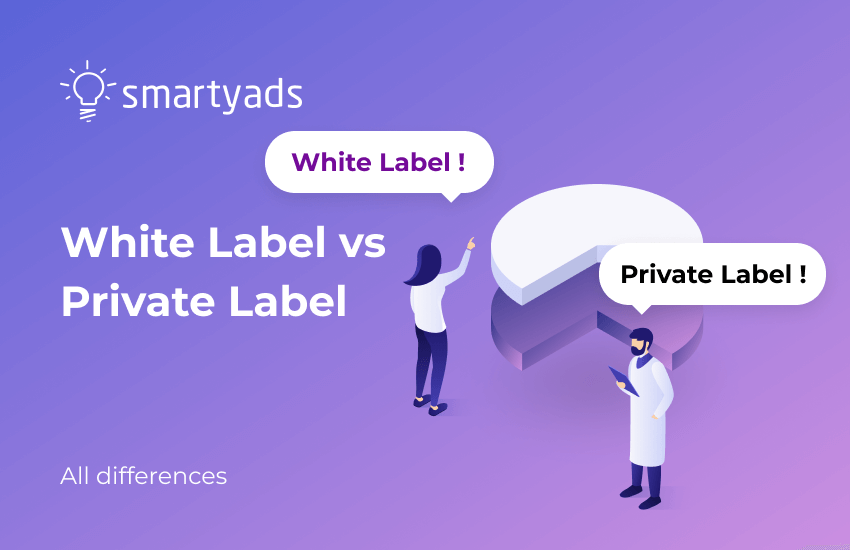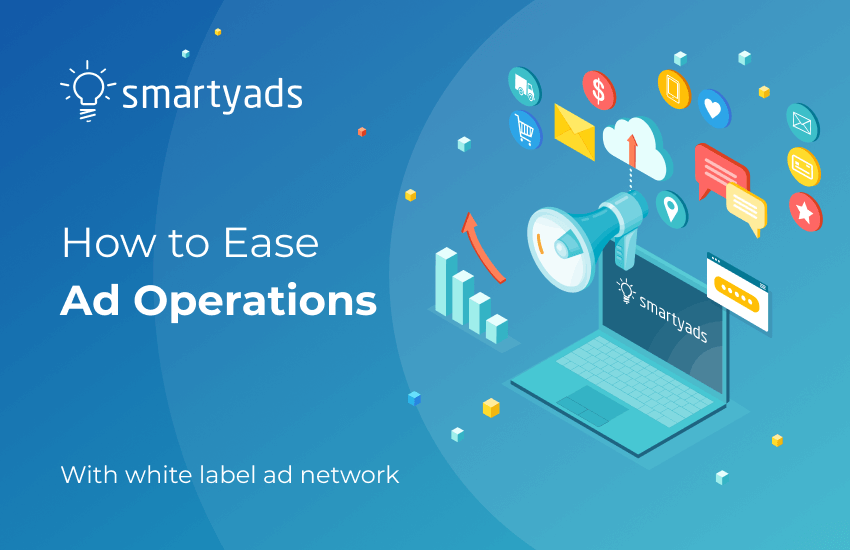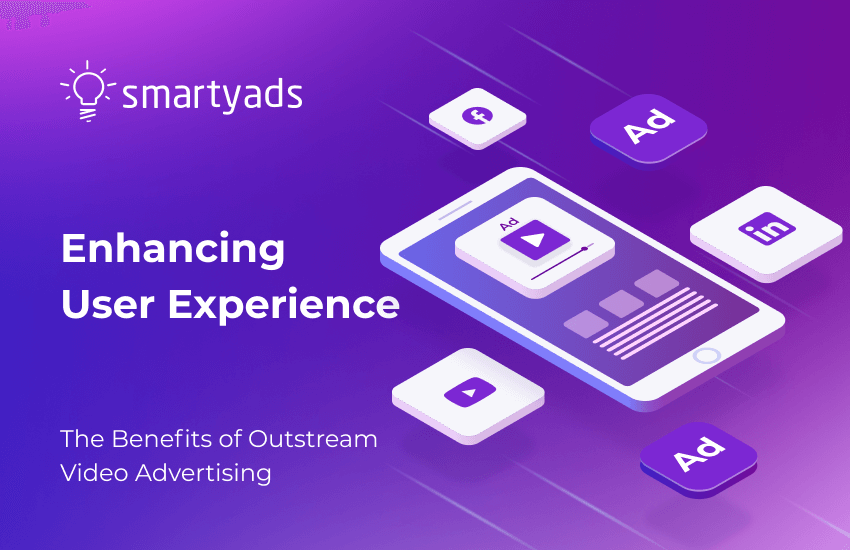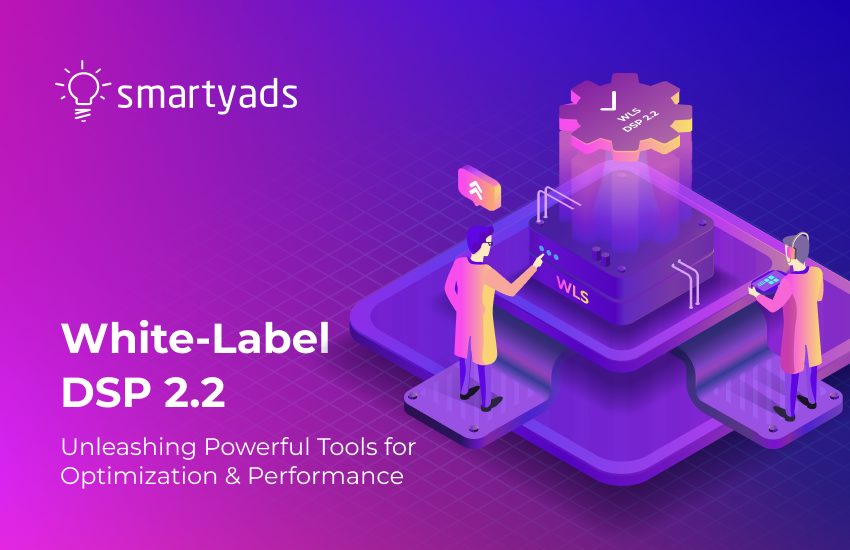Is there a battle between white label vs private label companies? Probably more confusion than battle. Thing is, these business models represent pretty similar relations between manufacturers and retailers.
Still, private labels and white labels have several important differences that advertisers and marketers should know about.
In this article, we are going to discuss what is the key difference between white labels and private labels, which model can better suit your company, and how to apply this knowledge to skyrocket your business goals. We will also explore the history of these relations and take a look at some popular examples, but first things first, let’s start with the white label vs private label definition.
What is a white label or a white label product?
What does white label mean in business? The term white label, originally hailing from the music industry, is used to refer to generic products or services created by manufacturers for sale by other retailers.
The resellers can then repackage these products, put their brand on, and sell them as their own. Similarly, white-label ad tech products mean that one can buy an unbranded platform or other solutions, customize it to their needs, and resell it under their brand name.
For many companies, this is a good deal, as they don’t have to create the actual product and can focus primarily on branding and marketing. Interestingly, sometimes different retailers can even charge differently for the products of the same origin, because of their position on the market.
So, one can see that such a business model works notably well for companies with already established and popular brands. Moreover, this model also offers a lot of benefits to little-known startups, as it doesn’t require huge investments or experience.
In the IT industry white label company has a primary focus on developing software solutions that other brands can label and resell as their own. Such white label software has a lot of benefits. Let's review some white label examples.
Why do businesses choose white label companies?
Let's review the case with ad tech white label providers; they have an existing product that they sell to other retailers who can capitalize on it. What benefits does a brand receive from it?
Reduced production costs
White-labeled software is pre-built which means it requires less labor to install or deploy (normally software development employs a lot of stages from coding to workflow organization and licensing). Here's an example of white label DSP:
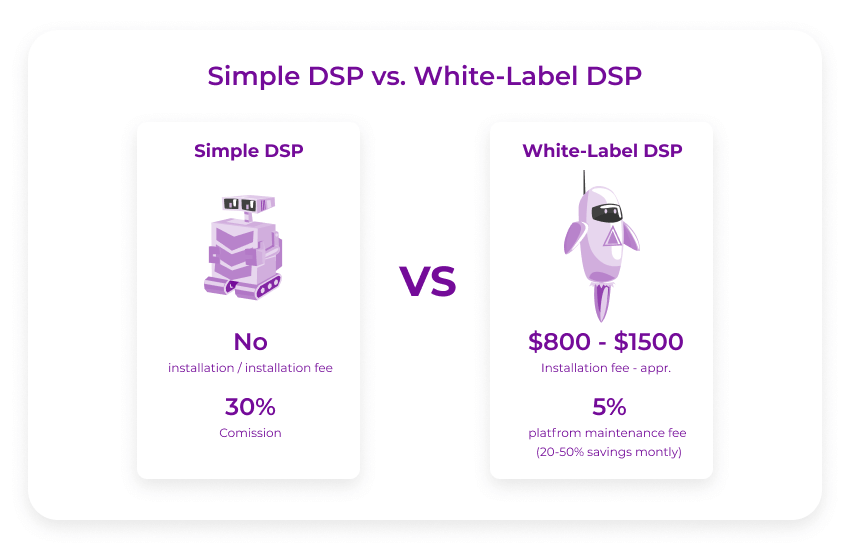
Reduced risks
Some argue that while labeling, a brand gets a generic product. However, in IT it highly pays off since the software is tested, so it eliminates possible malfunctions, bugs, and other related problems with functioning.
Simpler operation
In ad tech, the major difference between solutions built from scratch and white label solutions also lies in user-friendliness. Such a solution is not used by one company only. Hence, developers do their utmost to make their technology intuitive and easy to operate: they adjust the user interface, make important updates, and on-demand integrations.
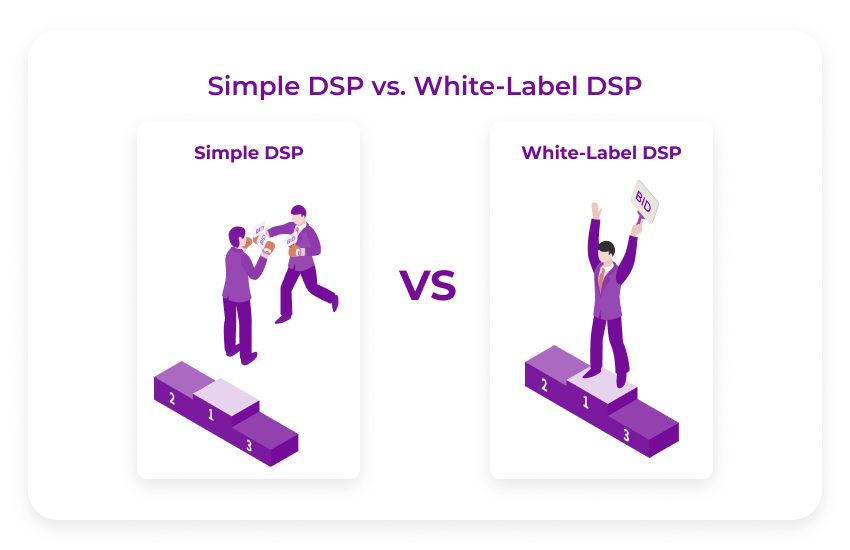
Faster deployment
With white labeling, the brand can get the desired product much faster in comparison with building the identical product from scratch. Thanks to this retailers normally sell products much faster and thus, achieve profits more swiftly.
In ad tech a brand adopts the same product and based on the pre-built tech core creates its own brand solution with its own brand name within several days.
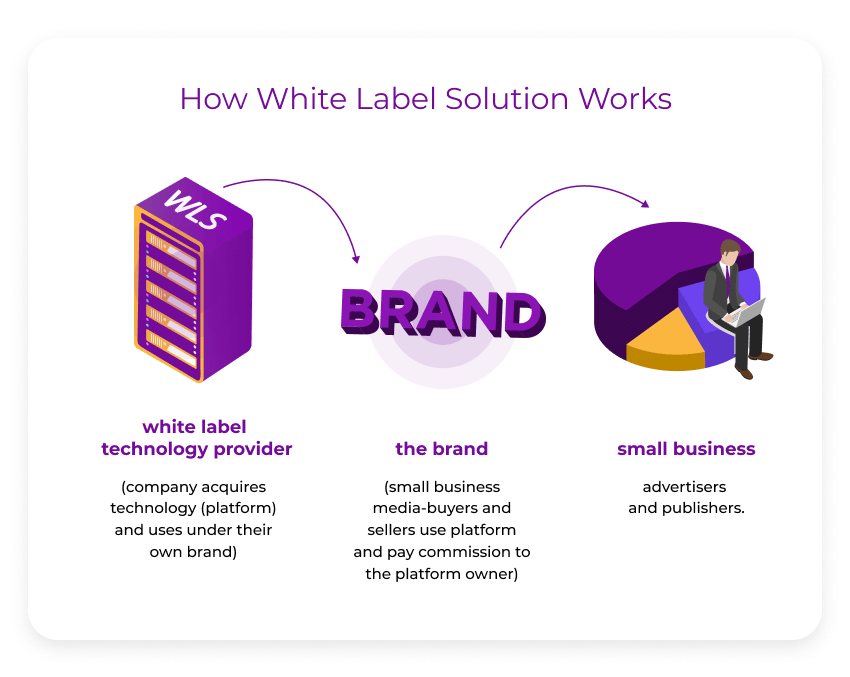
What is private label or private label product?
Now that we’ve clarified the white label definition, it is time to answer the question — ‘what is private labeling?’. One can say that a company uses the private label products or services if those were designed and produced for sale by another company for a specific retailer exclusively.
Private label manufacturer or private label brand creates products following the resellers’ specifications, so the product is customized even before it gets labeled. That's called private labeling.
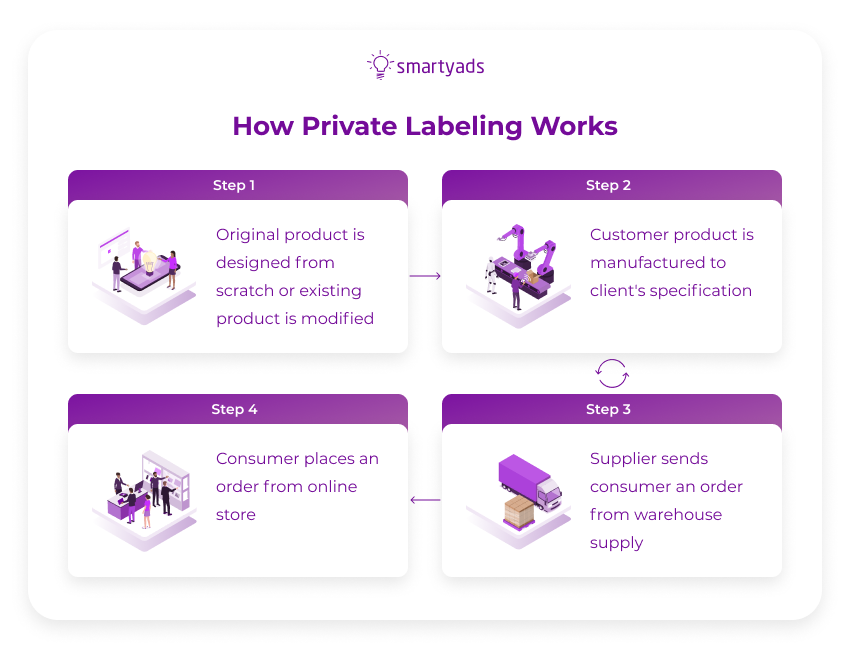
Private label business models are widely used in the beauty industry, manufacturing, and outfit production. It is often more affordable to get these products via private labeling. This is why private label services have a huge potential.
Because of this, a typical retailer often goes to a private label manufacturer since the final product helps to compete with more recognizable brands.
For example, a retailer gets a private label product to offer a similar style of outfit for a lower price compared to other well-known clothing providers. In this case, the price is a factor that helps a retailer to become more popular than competitors.
According to Euromonitor, private label is worth 10% of global sales which equals $350 billion.
When it comes to industries, the highest value share belongs to hygiene (14%), packaged food (12%), and pet care(12%) private label brands.
Other categories include home care (6%), hot drinks (6%), soft drinks (5%), and beauty (3%) so private label services are pretty popular.
As we can see, the concepts of white label vs private label are somehow similar, as the mechanics of how these business models work are very much alike. Nevertheless, the definitions give hints to us that some differences are so significant that they can play a decisive role in your business strategy.
So, let’s start the comparison, what is white label vs private label?
Differences and similarities between White-Label vs Private Label
In short, both business models allow resellers to focus on marketing whereas manufacturers deal only with the process of production. This way, marketers do not need to worry about the technical part of the deal which saves lots of time and money.
However, in the case of white label marketing, a product or service can be provided to multiple resellers, each of them rebranding the same thing as their own. At the same time, private labeling can provide more customization, options which, however, will more depend on the selected service providers.
Key similarities (white label vs private label)
Third-party manufacturers
Both models imply production by a third-party manufacturer and further reselling with custom branding by another company.
Control over marketing strategy
In both cases, a retailer is the one in full control of advertising strategy and the whole marketing process, from brand image to customer journey path creation and finally, purchase. Retailers can give the product any name or image they want.
No trademarks
Manufacturers don’t have any trademarks over products or services they sell via white or private label models once the deal is closed. Both are B2B business models. So, in both cases, customers usually have no idea that the product they purchased was actually created by another company.
Key differences (white label vs private label)
Exclusivity
Private label manufacturer creates the product exclusively for one specific retailer, so the competitive retailers aren’t likely to have similar products. If a reseller chooses to sell private label products, they will most likely have some specific features in its design, texture, or materials that resellers specify before the manufacturing process starts.
At the same time, white label manufacturer creates the same product that can be available for multiple resellers, which means that for new companies in specialized industries it will be much easier to enter the market with a pre-built solution.
The uniqueness of these products will depend mostly on branding and marketing choice, along with customization opportunities left by the manufacturer.
So, the same towel manufacturer can sell towels with the same design and other specifications to multiple resellers, each of which would make their own branding choices as well as develop a marketing strategy.
Industry choice
Private label is generally more common for physical products, such as cosmetics, household items, outfits, etc. It is usually used by small businesses that focus on specific physical goods that don’t require great complexity in production. Private labeling is especially popular within the healthcare industry and consumable goods like food and beverages.
White label, on the other side, is a widely-used business model within the technology sector, especially branches like IT, marketing, and ad tech. White label can be used for physical products as well, so the scope of this model is somewhat bigger if we compare white label products vs private label.
As for geographical distribution, private label practices are more prevalent in Western Europe which has the highest private label market share — above 40%, compared to just 19.5% in the US.
White label is also a very popular model in the ad tech industry, especially programmatic since ad spending across this channel is growing each year. Thus, a new ad tech brand is normally looking for a way to simplify the deployment of a complex solution that requires lots of integrations and adjustments.
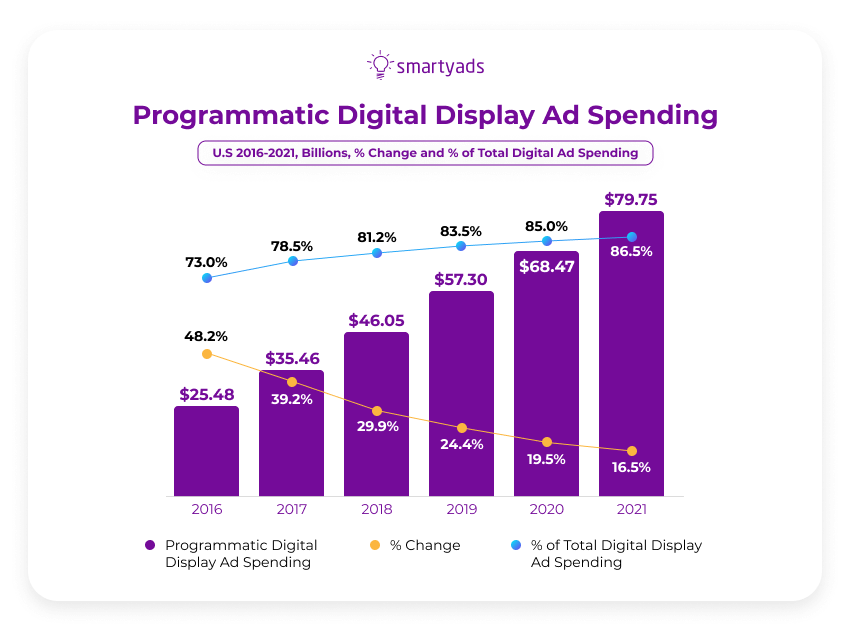
Products’ customization
This is also a key moment for defining white label vs. private label distinctions. Private labeling by nature is more customizable than the white label, as this business model implies retailers are sending their specifications to the manufacturer before the actual production starts.
Usage of white labeling gives you the freedom to customize packaging, but usually by the time the deal is closed products are already finished. However, that does not necessarily mean that resellers of white label products have no options to change them.
Many white label manufacturers provide flexible solutions that can be modified according to clients' business needs.
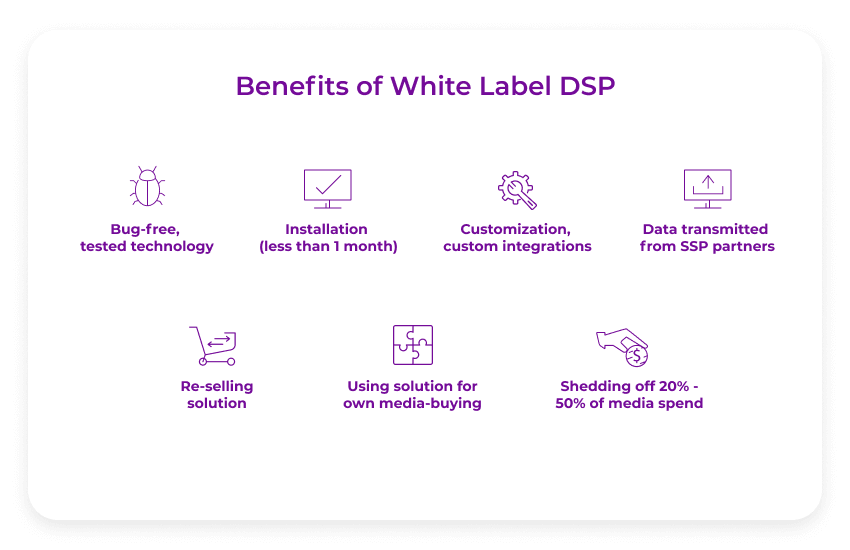
Investment and ROI
Private labeling requires more investment, as it implies that a reseller conducts research and product development before the manufacturing process. This will probably take additional costs and require hiring additional professionals, but the ROI will also reflect the effort.
This model allows you to sell a unique product which is something consumers usually like and appreciate. So if you’re interested in selling unique physical products, private labeling can be potentially a more profitable option.
At the same time, white-label products usually come at a lower cost of production, since it doesn’t require extra investments into the development process.
If marketed correctly, white label products can get you high ROI, but be prepared for the stronger competition if it is a physical product. In short, both private and white label products are highly beneficial if done professionally, but one gives you product exclusiveness, and the other lets you get a wider audience with less investment.
Starting your own business: white label manufacturing or private labeling?
Taking into consideration previously listed differences, one can make a rational conclusion that private labeling vs white label manufacturing models are suitable for many companies. Still, the choice must be made depending on business goals.
For small businesses focusing on physical customizable goods, a better option is private labeling, while the white label has more advantages for internet-based businesses, especially in the field of digital advertising. We will consider the advantages of private label products vs white label for different businesses in the next section.
Which one to choose: private label or white label provider?
Both private vs white label models ensure that a reseller doesn’t have to put a lot of time and effort into the manufacturing process.
Product design and creation are usually also parts of the job manufacturer does; although, a reseller can sometimes add specific details to the product or customize it after manufacturing. But generally speaking, both models allow you to focus on other aspects of your business and save time and money.
When to choose private label
The main distinctive advantage of private labeling is uniqueness. With private labeling, merchandisers get an opportunity to sell an exclusive product and worry less about competition. It also has good potential regarding profits, plus, it is easier to start without huge investments, especially when the right target niche is chosen successfully.
Private labeling is a great choice if you want to focus on delivering a specific type of product to a specific audience.
When to choose white label
The white label model is even easier and cheaper, given that the product is already developed and manufactured, so no additional research is needed from the retailer and the potential profits are higher.
White labeling gets even more promising if you already have an established client base, so the only thing you have to worry about is a good marketing strategy, the rest is done for you by the manufacturer. This is especially true for the technology sector, where the process of new solution development may take up months or even years.
With white labeling, you can get a finished solution customized for your business needs within a short time, one month tops.
This way, you can start earning almost immediately and the only thing you’ll have to worry about is building your business strategy and product marketing. Besides, sometimes even already established companies require changes and a shift to white label ad tech platform.
Best white label solutions for digital advertisers
As we have already mentioned in the previous section, white labeling is a fairly popular and beneficial option for digital businesses, including ad-tech and digital marketing.
Private label can also be beneficial for many retailers that strive to easily build their own products. Instead of wasting tons of time and money on developing your own solutions, which can be potentially risky, you can now purchase a pre-built platform tailored to your goals and tested on numerous other businesses.
Our offer includes several programmatic solutions, built by professionals for professionals. Work with publishers using our White Label Supply Side Platform or choose White Label Demand Side Platform if you want to focus on the advertisers’ side of the deals. To launch your own open programmatic marketplace opt for our White Label Ad Exchange SmartHub.
